LeMond opens up about doping and his feud with Armstrong: "Bizarre that the Armstrong era was even worse than the '90s"
CyclingSunday, 05 January 2025 at 09:24

Before Lance Armstrong dominated the cycling world, there was Greg LeMond. In 1986, he became the first American to win the Tour de France—a feat he would repeat twice more. LeMond also claimed two world championship titles, earning his place as a true pioneer of the sport. However, his career was far from smooth, with a hunting accident and a feud with Armstrong casting shadows over his life both during and after his time in the peloton.
When LeMond won the Tour de France for the first time at age 25 in 1986, he had already claimed the world championship title three years earlier. The cycling world seemed to be his oyster, but disaster struck in 1987. While turkey hunting in California with his brother-in-law, LeMond was mistaken for prey and was accidentally shot. Over sixty shotgun pellets struck him, leaving him in critical condition. He lost 70% of his blood and would have bled out within 20 minutes.
LeMond attempted a return to professional cycling later that year, but the champion was no longer the same. "I went from being one of the best to one of the worst," he told CyclingWeekly. "It’s never really been written what my wife Kathy and I went through after I got shot. The suffering, the lack of hope, the dark days, every race saying I’m going to come back but then cracking, two PDM riders testing positive. It was our worst nightmare." It seemed that his once-brilliant career had been cut tragically short.
Read more below the photo!
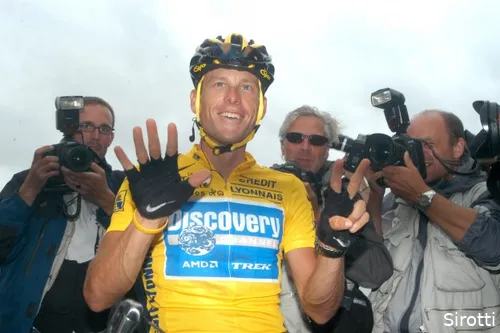
Lance Armstrong grew to become LeMond's biggest post-career rival.
LeMond sees EPO as reason for his early retirement
But suddenly, LeMond was back—and how. In 1989, he won the most dramatic Tour ever, beating Laurent Fignon by eight seconds and snatching the yellow jersey in the final time trial. A year later, he defended his title. After this victory, the American continued racing for another four years but never reached his old level again. In 1994, he retired from cycling, citing numerous physical ailments. "Part of my heart aches because I didn’t have a career less affected by injuries and the dawn of the EPO era."
The substance gained traction in the late '80s and early '90s, though it was already on the list of banned substances. LeMond still insists he never used EPO and has always been fiercely anti-doping. In the U.S., he is regarded as "Mr. Anti-Doping." "I had to take on that position," he says. During that time, Lance Armstrong was the dominant name in cycling, but "The Boss" ruled with an iron fist and violated just about every doping rule in existence. "It was bizarre that the Armstrong era was even worse than the late '90s." Johan Bruyneel dismisses LeMond's claim of staying clean, calling him a 'cortisone king.'
This also played a role in his life after his professional career. LeMond was critical of Armstrong, something his compatriot could not tolerate. The then-seven-time Tour winner made his life miserable, tarnishing his name in the media. Eventually, LeMond was vindicated, but only after years of suffering. His job as a commentator was also affected by his knowledge of doping in the sport. "I loved it," he says about the role. "But it was hard to get excited about certain individuals when I had inside info about them. It was painful."
IDL-productions
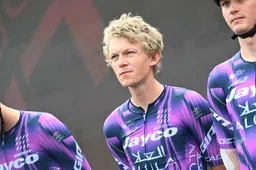
Bouwman not afraid to change at 32 after first disaster year outside of Visma: 'Have to be honest with myself'
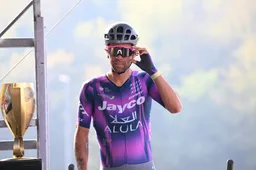
Sanremo, a world title and the yellow jersey: Michael Matthews escaped death - and that reignited his spark
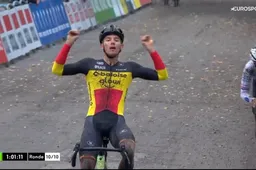
Unlike road colleagues Van der Poel or Van Aert, Nys rides twice as many cyclo-crosses: 'He doesn't want to ride only ten cyclo-crosses'
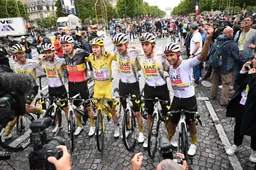
95 (or was it 97?) wins and a new record year, but losing that one race still hurts UAE Team Emirates - XRG

Former cyclocross world champion recalls wonderful memories of young Nys: "Back then we thought: that's not going to work out"
Latest Cycling News
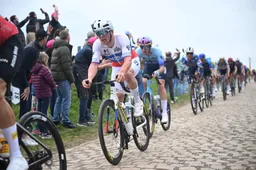
Unibet Rose Rockets and Kubis proved their colleague's wrong: 'We got zero respect'
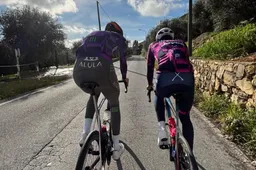
'I miss you, little brother'; Emotional words of Jayco-rider after tragic loss of friend and young talent (19)

How a nearly untraceable issue almost made Ferrand-Prévot retire: 'It easily ruined two years of her career'
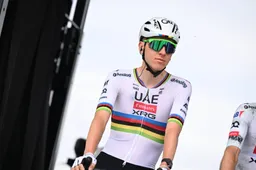
Tadej Pogacar again aims for Roubaix win... With help from F1 driver Sainz? 'Know I'm in good hands'
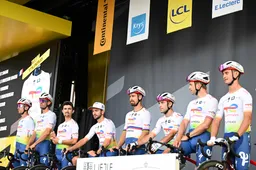
TotalEnergies slammed over former Lotto-chief appointment: 'Has abandoned his teams more often than he has helped them'
Popular Cycling News

How a nearly untraceable issue almost made Ferrand-Prévot retire: 'It easily ruined two years of her career'

Tadej Pogacar again aims for Roubaix win... With help from F1 driver Sainz? 'Know I'm in good hands'

'I miss you, little brother'; Emotional words of Jayco-rider after tragic loss of friend and young talent (19)

'We're not freelancers'; Primoz Roglic responds to choices within Red Bull, but also leaves opening

TotalEnergies slammed over former Lotto-chief appointment: 'Has abandoned his teams more often than he has helped them'
Latest Comments
- Those events are mental rest for him. Fun, without expectations. *Sagan lost his abilities because he gained weight and got lazy. Pogi will likely retire before that has a chance at happening.Veganpotter14-12-2025
- Ah, the consequences of riding for Israel.Veganpotter11-12-2025
- Pidcock could follow everyone but Pogi while finishing 3rd. No second place rider this season😃Veganpotter16-11-2025
- Now the Palestinian protestors can stop their whining. Trump came to the rescue. So they can now STFU and go back to waving the rainbow flags.raufus15-10-2025
- Cracked the code lol. If it was that easy to 'crack the code' jonny Vegas would be charging up the Kwaremont giving Pog a dose of his medicine. Evenepoel can't match pog on a climb and neither can mvdp. Anything with a half difficult climb and Pog smashes the field. Even on flat(ish)parcours like Roubaix it came down to a mistake and crash by pog to definitively crown mvdp. MSR is the only one that Pog probably won't win.kevpt10-10-2025
- We've seen this movie before. I think Pogacar is doping.DeadBlow10-10-2025
- 👍Bea08-10-2025
- 👌🏻Bea08-10-2025
- What the data doesn't show is how much of an effect drafting had for evenepoel. Pogacar went with del toro at 100km whilst Evenepoel was still in the bunch. Despite the bike changes he still had a lot of assistance getting back to the bunch. Pogacar then rode 60km solo whilst evenepoel rode with Healy/Skjelmose until going solo in thd last 10-15km. Thats ~20% less power / energy requirements for 45-50km. Apples and oranges...kevpt30-09-2025
- 👏👏Bea24-09-2025
Loading